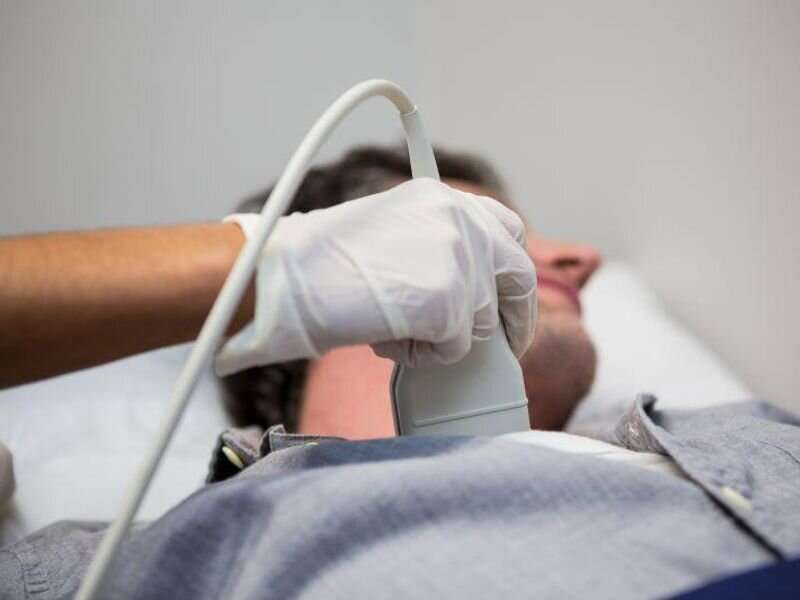
(HealthDay)—For patients undergoing right heart catheterization, point-of-care ultrasonography assessment of the jugular venous pressure (JVP) height can accurately predict elevated central venous pressure (CVP), according to a study published online Dec. 28 in the Annals of Internal Medicine.
Libo Wang, M.D., from the University of Utah School of Medicine in Salt Lake City, and colleagues conducted a prospective observational study at two U.S. academic hospitals involving adults undergoing right heart catheterization between Feb. 5, 2019, and March 1, 2021. The accuracy of quantitative and qualitative point-of-care ultrasonography assessment of JVP was validated for prediction of elevated CVP. The JVP height was estimated by a handheld ultrasound device (uJVP).
The researchers found that the uJVP in a reclined position accurately predicted elevated right atrial pressure (RAP; >10 mm Hg) in 100 participants undergoing right heart catheterization for heart failure indications, with an area under the receiver operating characteristic curve of 0.84. The specificity of a positive uJVP in the upright position for predicting elevated RAP was 94.6 percent.
“Although not a replacement for physical examination, formal echocardiography, or invasive hemodynamics, the uJVP demonstrates accuracy and reproducibility in evaluation of central venous congestion,” the authors write.
Source: Read Full Article
